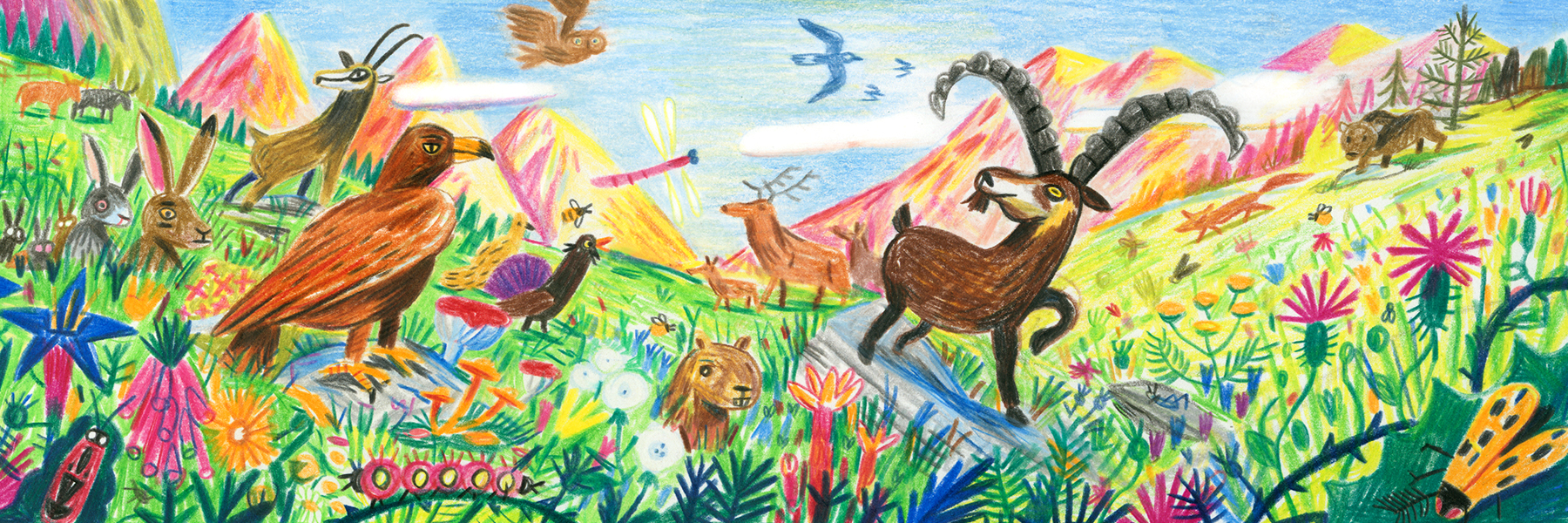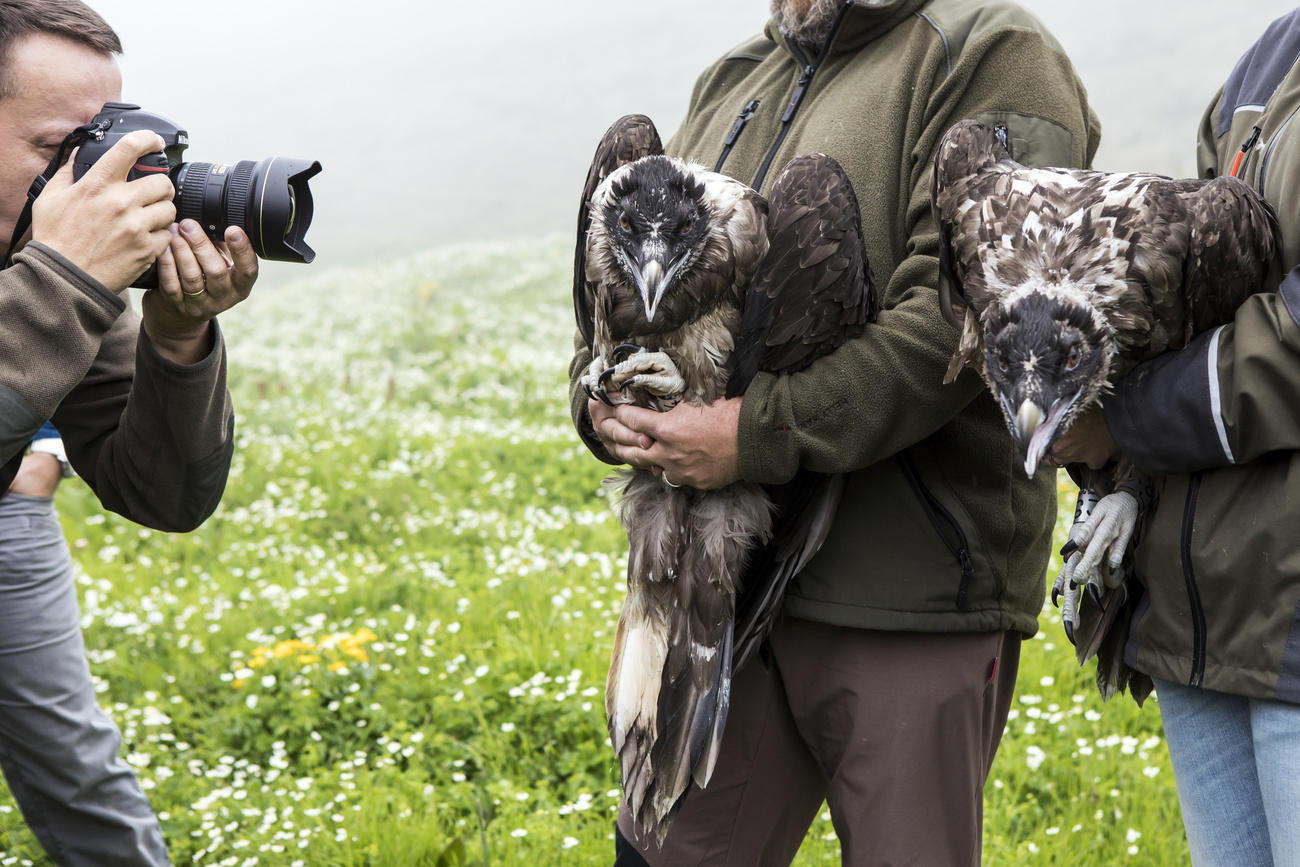
WWF urges national bank to act on nature-related risk

As Switzerland faces deforestation, monocultures and overfishing, the environmental organisation WWF Switzerland is calling on the Swiss National Bank (SNB) and the financial watchdog FINMA to take action.
“A growing number of central banks have begun to investigate biodiversity risks and take them into account in their supervisory activities. Now the SNB and FINMA must follow suit,” WWF Switzerland said in a statementExternal link on Wednesday.
A new WWF reportExternal link, Why central bankers need to take action on biodiversity risk, warns that current practices of only integrating climate-related risks and impacts in existing mandates of central banks and financial supervisors, and not including risks from nature loss, fall short in ensuring a sustainable financial system.

More
The Swiss Alps are beautiful, but are they biodiverse?
Based on the conclusions of the report, WWF Switzerland has three recommendations for the two institutions. First, they should act from the principle that environmental degradation and loss of biodiversity, like global warming, lead to financial risks.
Second, preventive measures should be taken to reduce the risks associated with the loss of biodiversity. The monitoring of risks in the individual economic sectors and in monetary policy would offer starting points for this. Central banks should also consider these risks in their own areas of activity and support research on these topics.
And finally, the SNB and FINMA should act in accordance with Switzerland’s environmental goals and work for a common international financial regulation that integrates and takes into account environmental aspects, WWF said.

More
Now for some good news about biodiversity

In compliance with the JTI standards
More: SWI swissinfo.ch certified by the Journalism Trust Initiative






























You can find an overview of ongoing debates with our journalists here . Please join us!
If you want to start a conversation about a topic raised in this article or want to report factual errors, email us at english@swissinfo.ch.